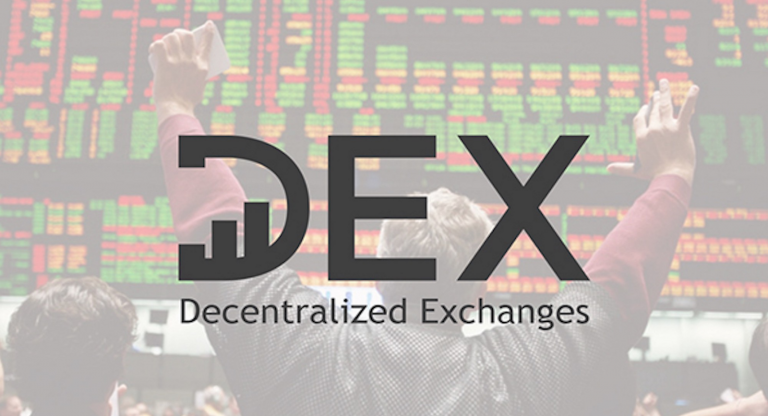
If you are remotely interested in buying or selling cryptocurrency, then you should know about exchanges. Many great exchanges offer excellent services. However, these exchanges lack one crucial aspect, i.e., “decentralization.”
A decentralized exchange, for one, enables end users to sell and purchase cryptocurrency without any centralized control. Decentralized exchanges fall in line with the philosophy of blockchain technology and provide users a truly decentralized experience.
Outline
- Decentralized exchanges and their key functions
- Decentralized Exchanges: The Future of Exchanges
- What are the benefits of DEX?
- Disadvantages of Decentralized Exchanges
- DEXs that you should check out
- Conclusion
Decentralized exchanges and their key functions
To make sure that a decentralized exchange works as intended, it needs to offer four core functions.
- Order books
- Capital deposits
- Asset exchange
- Order matching
With these four key functions, a decentralized exchange(DEX) can work as intended, powering end users. Also, all the functions should be decentralized.
So, how does it differ from a traditional exchange? In the four key functions that we listed above, one asset exchange is kept decentralized, whereas the other three key functions are centralized. This also means that the centralized exchange has all the information about the person who is using their exchange thanks to the KYC(Know Your Customer).
Centralized exchanges have no choice when it comes to gathering information. They have to follow the AML and KYC regulations. In the end, the focus they have to follow regulations which result in a permissionless ecosystem.
Decentralized Exchanges: The Future of Exchanges

Apart from the four key features, a DEX should have the following key features.
- The user is in full control of his funds.
- No external control, especially government involvement.
- There is no single point of failure when it comes to decentralized servers. This also means there should be no centralized components.
- No collaboration with any third party networks or services.
- No requirement for KYC or AML.
- Not controlled by any companies or organizations.
What are the benefits of DEX?
To truly understand the importance of DEX, we need to understand the benefits it brings to the whole cryptocurrency ecosystem. By doing so, we can truly understand its position and the need for it. Let’s get started.
DEXs align with the core idea of decentralization. They ensure that peers can connect between themselves without any centralized entity and exchange assets or cryptocurrencies without any centralized entity controlling or overlooking the whole process. This is necessary to ensure that we have a genuinely decentralized ecosystem.
They make the end user their own bank. It also means that they need to take care of everything and are themselves responsible if something goes wrong.
DEXs run 24/7 without any downtime as they work via a decentralized format.They don’t need to know about their users and hence don’t need the user to register for an account and therefore also don’t have to go through a KYC.
DEXs improve liquidity for some of the tokens/cryptos out there as they don’t have to go through a cumbersome process of getting listed on the centralized exchanges.
Government or any other centralized organization or company can never have control over DEXs.DEXs help fuel the crypto boom by providing the end users the ability to remain anonymous. Being anonymous is one of the first reasons for using cryptocurrency.
A decentralized exchange offers unparalleled security when compared to a centralized exchange.
All these points highlight the importance of decentralized exchanges.

Disadvantages of Decentralized Exchanges
Decentralized exchanges do come with some drawbacks. To get a better picture, we also need to go through their disadvantages. Let’s list them below.
Decentralized Exchanges are not user-friendly. This can discourage many new users who are new to cryptocurrency.
Liquidity can be a big issue when it comes to DEXs. With no proper user support and UI, most of the users stay away from DEX which leads to low liquidity.
Many trading features from DEXs are missing such as lending, margin trading, stop loss and so on.
Transactions are sometimes not being processed by the network and hence declined.
Not all DEXs are equally created which can further hamper user experience. For example, some DEXs would require users to be online to perform trading actions.
DEXs that you should check out
There are many excellent DEXs out there. As a user, you should check them out.

Bancor Protocol: Bancor Protocol tries to solve the liquidity problem with their unique Token Relay technology. It also tries to simplify the whole process. However, it only has a small list of cryptocurrency for now, but we think that it will grow more in no time.
EtherDelta: EtherDelta is another popular DEX platform. It utilizes MetaMask to log in and does the trading. Here, you can do buy/sell order and also see the order book during your transaction time.
0x: 0x offers a peer-to-peer exchange which runs on Ethereum blockchain. All the Ethereum assets can be peer exchanged using 0x. More than 30+ projects are currently running on 0x.
CryptoBridge: CryptoBridge is a new entrant to the decentralized exchange list. It runs on top of the BitShares network and provides access to all the popular altcoin pairs. The users have full control of their private keys and can safely trade using the decentralized exchange.
Waves: Waves take advantage of Waves blockchain. It is a trustless platform where you can trade your tokens while keeping your privacy intact.
Conclusion
Decentralized exchanges(DEX) are indeed the future. Currently, most of the DEX platforms are suffering from an improper user experience, lack of liquidity and other issues that prevent from being mass adopted. However, the scene is growing in the right direction with many decentralized exchanges providing better service. So, do you think that DEXs will continue to grow? If yes, comment below and let us know. We are listening.



Thanks 😃
Posted using Partiko Messaging
Dear @icodog
Very interesting choice of topic my friend.
Im glad that you're building awarness about decentralized exchanges. Most people still know way to little about it (including probably me).
I noticed that you keep posting really quality content. Perhaps you could always send me memo with link to your publication and 2-3 sentences description ? I will gladly support you with upvote, will drop a comment.
And if I will have some time then I will also share your publication with my larger audience and will help you get some extra traffic.
Remember that you can count on my help :)
Cheers
Piotr